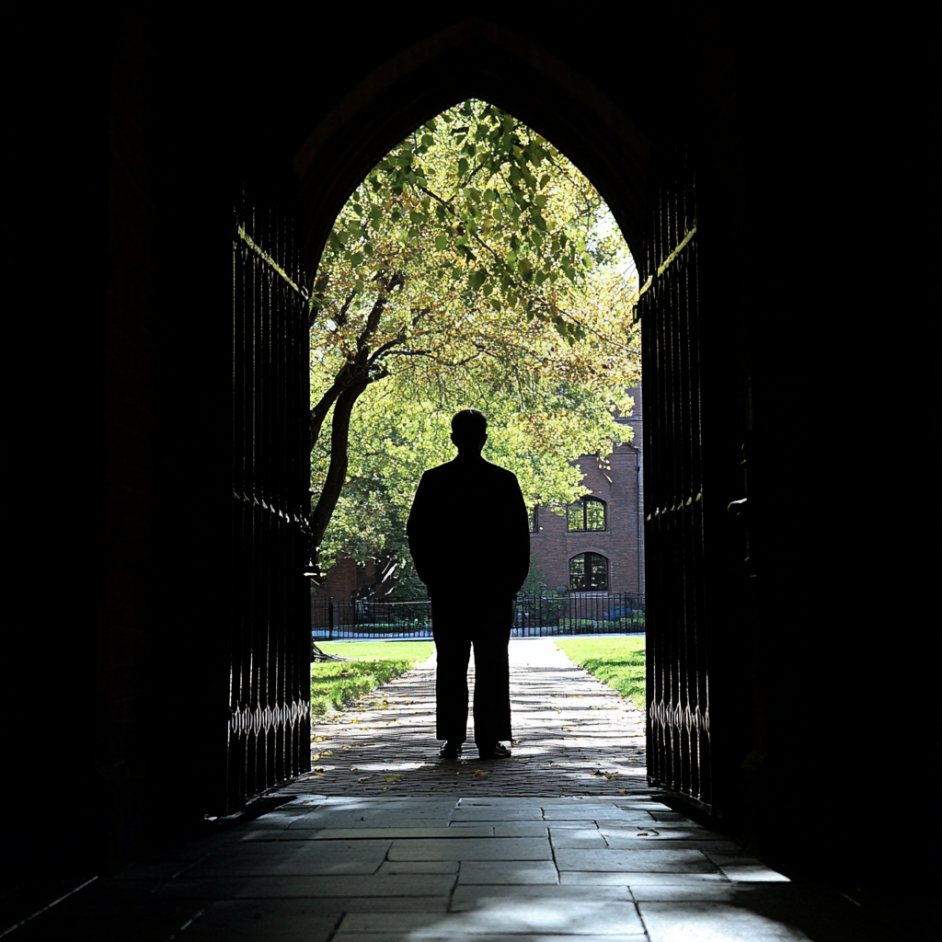This 1 Reason is Why We Rejected a Lot of Students — Former Harvard Admission Officer
Ivy Brothers • 2024-10-30
In the ultra-competitive world of Ivy League admissions, it’s not enough to have top grades and test scores. Harvard, like many elite schools, has had to find ways to narrow down the field among countless well-qualified applicants. One often-overlooked factor in the decision process, according to a former Harvard admissions officer on the team at Ivy Brothers, is “demonstrated interest”—a hidden yield tool that determines just how much you want to attend. Here’s what this former insider had to say about why demonstrated interest could make or break your chances.
1. Not Meeting the “Interest Yield Bar”
"Harvard receives tens of thousands of applications from academically qualified students every year," the former admissions officer explains. "But with acceptance rates as low as they are, we need to admit students who are not only qualified but also highly likely to attend if accepted. This is where the concept of an 'interest yield bar' comes in. We actually had a special formula to calculate a given student's 'interest yield bar.' Students are essentially given a score for how interested they are based on their engagement."
Each year, Harvard sets a bar for how much interest applicants must show to indicate they’re genuinely committed to attending. Students who apply as a backup option or don’t actively engage with the university throughout the application process often fall below this bar. “Without demonstrated interest, applicants can come off as less committed, and we know that accepting them might risk a ‘no’ when they choose a different school,” the former officer explains.
2. Tracking Your Digital Footprint
If you’ve ever wondered whether Harvard knows how often you check your application status page or open its emails, the answer is yes. “Almost every applicant is tracked for demonstrated interest, and we look at much more than just whether they visited campus.” the officer reveals. "We have a lot of tricks up our sleeve for tracking the student's interest." Here’s what the admissions team might look at:
- Email Engagement: Admissions teams track how many times you open their emails, how long you spend reading them, and whether you click any of the links. “If a student never opens our emails or only clicks once, it raises a flag. Frequent, meaningful engagement with our communications shows genuine interest.”
- Website Behavior: When you visit the university’s website, Harvard can see where you spend your time and how long you stay on certain pages. “Applicants who are exploring programs, faculty, or admissions resources demonstrate more intent than those who just pop onto the homepage for a minute,” the officer explains.
- Event Participation: Virtual and in-person events, like information sessions or Q&A webinars, are prime opportunities to show interest. “We track attendance and take note of applicants who consistently attend or ask thoughtful questions. It suggests they’re willing to take the time to connect, which matters to us.”
- Social Media Engagement: Believe it or not, some schools check if you follow their social media accounts or engage with their posts. “We’re not counting likes and shares, but if someone has followed us or engages with our content, it adds a subtle hint that they’re interested in the community.”
3. Interest Matters—Even for the Qualified
It might surprise some to learn that applicants can have impeccable credentials and still be rejected if they fail to meet the interest yield bar. “We regularly had applicants with top SAT scores, straight As, and impressive activities who didn’t show any measurable interest,” the admissions officer recalls. “If they didn’t open emails or spend time learning about our school, it suggested that they were either using Harvard as a backup or weren’t genuinely interested in what we offer.”
For highly qualified applicants, demonstrating interest might feel unnecessary, but it’s essential. “We’ve had applicants with perfect profiles who ended up waitlisted simply because they didn’t engage with the admissions process,” the officer says. “It can be frustrating to see these students disappointed, but at the end of the day, we want to accept people who are eager to attend and who have taken the time to get to know us.”
4. The Key Takeaway: Engage Early and Often
For students applying to top-tier universities like Harvard, the takeaway is simple: show consistent, meaningful interest early on. If you’re serious about attending, engage with the school’s emails, website, and events. “If you’re applying, don’t just send in the application and wait. Open emails, check out the website, attend info sessions, and make yourself known,” the former admissions officer advises. “A consistent digital footprint tells us that you’re serious, and that commitment can go a long way.”
So, while academic achievements are critical, they’re not the only factor. By demonstrating interest, students can set themselves apart in an applicant pool full of high achievers, letting admissions know that they don’t just want to get into Harvard—they want to be at Harvard.
Schedule a Consultation with Ivy Brothers
Ivy Brothers has helped many students get accepted to top schools, founded by admission counsellors from Harvard and Princeton. We've helped students score the highest rating in schools' "interest yield bar." Schedule a consultation today!
See More Posts
Ivy Brothers
Copyright © 2021 Ivy Brothers, Inc. All rights reserved.
Company
hello@theivybrothers.com



